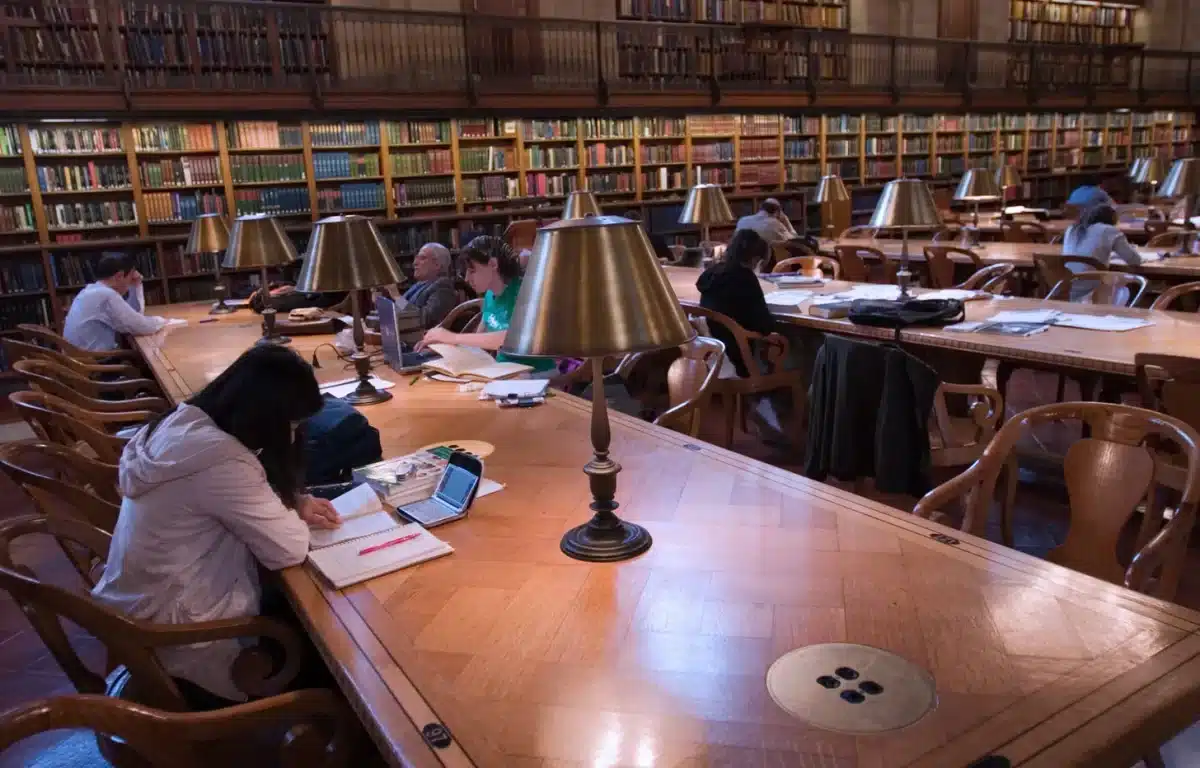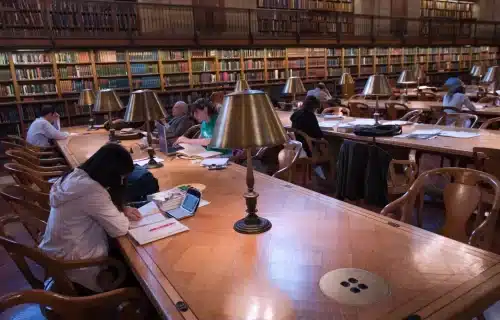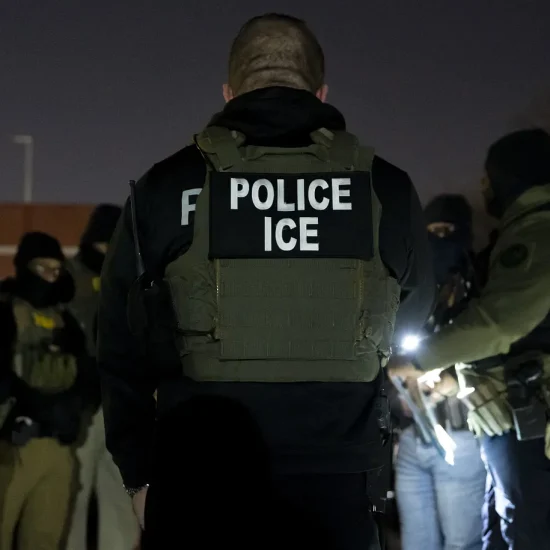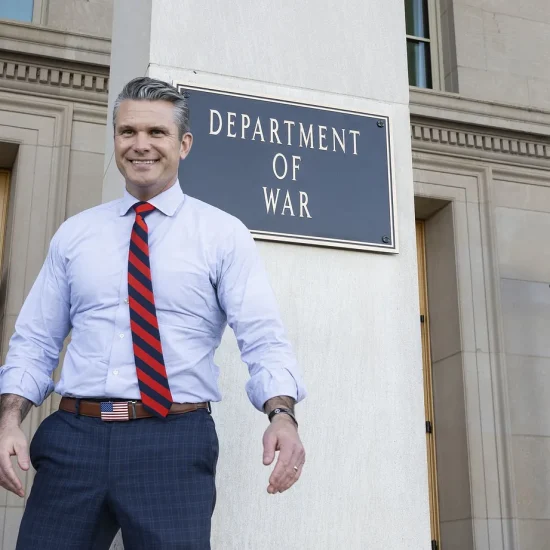
Last week, actor LeVar Burton interrupted his tweets about Star Trek memories and the promotion of a new episode he directed of NCIS: Hawaiʻi to offer a spirited critique of state lawmakers in Missouri. Best known as the host and executive producer of Reading Rainbow, apparently Burton’s passion for books was not an act.
As he shared an article about a vote to defund public libraries, Burton tweeted on April 12: “Good morning, to everyone… except Missouri House Republicans. This bullshit has to stop!!!” Seeing a TV star from our childhoods cursing out our legislators wasn’t on our bingo cards for this year. But these are unusual times.
In 2022, the Missouri legislature joined those in other states in claiming that public schools were giving kids sexually-inappropriate reading materials or books that taught things like critical race theory. So the Show-Me State passed a bill to ban “sexually explicit” content in schools (even though pornographic materials were already banned). Because of the broad definition in the new legislation and fears of the penalties for failing to remove such materials — including up to a year in jail! — many schools quickly banned lots of books.
A report in November, just three months after the bill went into effect, found that at least 297 books had been banned in 11 school districts across the state. The banned books included Maus, Batman and X-Men comics, illustrated versions of books by authors like Edgar Allan Poe and Missouri native Mark Twain, and graphic novels about historical figures like Michelangelo and Vincent Van Gogh. Oh, and an illustrated Children’s Bible. Yep, that’s right, the Bible was kicked out of schools after all … thanks to conservative Christian lawmakers.
“Even amid an avalanche of book bans this fall, the removals in Missouri stand out,” Jonathan Friedman, director of free expression and education programs at PEN America, said about the report on the banned books.
PEN America, a nonprofit devoted to defending literary free expression rights, noted that the banned books disproportionally censored those authored by LGBTQ+ persons and people of color. The group also warned that the targeted books will particularly hurt students for whom graphic novels are key to engaging with books and becoming better readers.
In February, the American Civil Liberties Union of Missouri sued the state over the law. Joining them as plaintiffs were the Missouri Association of School Librarians and the Missouri Library Association. You know you’ve misbehaved when you get sued by the “shh, no talking” people!
Rather than paying their fine and returning the books they took, Missouri lawmakers decided to escalate their war against librarians — a fight that will be one for the books! So they voted to defund public libraries in the proposed budget — even though the Missouri Constitution specifically calls for the state to fund free public libraries.

Members of the Missouri House of Representatives debate legislation on March 21, 2023, in Jefferson City, Missouri. (David A. Lieb/Associated Press)
“It sounds like a dystopian novel where a government issues a book ban, librarians are upset about it and try to exercise their rights, and the government then defunded public libraries, which is like the primary source of free information in our state,” Democratic Rep. Peter Merideth told PBS Newshour, though we’re afraid that his comment will lead to works like Fahrenheit 451 and 1984 getting banned by lawmakers next (after they ban Burton’s show for having a rainbow).
Fortunately, state senators in both parties insist they will restore the funding for public libraries. But Republican Secretary of State Jay Ashcroft (who is running for governor next year) is implementing a controversial new rule without a vote by lawmakers to block funding for public libraries if they let minors access a book deemed inappropriate.
The quick escalation from banning some books to trying to put libraries out of business tells quite a story about the dangers of our political moment. And if lawmakers actually read some history, they’d also learn about the irony of crusading Christians trying to shut down institutions that Christians helped create.
So this issue of A Public Witness will take a look (it’s in a book) at the history of public libraries and the ways they help our communities go twice as high. Then this issue will look at friends to know and ways to grow as we support our local libraries.
More Than Freedom of Speech
If you have a “I ❤️ My Public Library” bumper sticker on your car, you might want to partially thank a pastor.
The creation of public libraries in the U.S. emerged as clergy members pushed the importance of an educated and reading public. Even before “we the people” threw off the king, churches in the colonies established parish libraries. They saw this as part of their evangelistic mission. Rev. Thomas Bray and his Society for the Propagation of the Gospel in Foreign Parts (which for this British charity included the Americas) are credited with starting over 100 early libraries in the American colonies.
Then some clergy helped start early versions of public libraries before governments started actually funding them. Like Rev. John Checkley in Boston, Rev. John Sharpe in New York City, and Rev. Samuel Watson in Barrington, Rhode Island. Then came the first tax-supported free library. Rev. Abiel Abbot had already created multiple libraries at his church in Peterborough, New Hampshire. But he argued the town needed a free one that anyone could access. When the people voted to create it and fund it in 1833, they named Abbot as one of the three members of the library’s directors. Later, Black ministers similarly helped start libraries for Blacks who weren’t allowed to use the public libraries (at a time when “public” often meant “White”). Like Rev. Thomas Blue in Louisville, Kentucky.
But the goal of libraries was more than just providing books, and those services have grown dramatically. Public libraries in the U.S. today play an increasingly important role in filling the gaps in our social services, often catering to vulnerable populations when no one else will.
Librarians these days not only have to master library science, they are often effectively social workers too. Many librarians regularly connect patrons to transportation resources, job placement help, mental health assistance, childcare services, and have even been trained to administer the overdose antidote Narcan. A handful of larger library systems have been able to hire full-time social workers to help with these issues — but many are too underfunded and understaffed.
Another important service libraries provide, especially in rural areas, is free access to the internet. This is important for the millions of Americans who cannot afford home internet and might not even be able to purchase high-speed internet because of where they live. And during the pandemic, even when the library buildings were closed, it was not unusual to see a library parking lot full of students using wireless internet services in order to keep up with online remote learning.

People use the New York City Public Library. (Jorge Royan/Creative Commons)
Libraries have also been on the frontlines of our homelessness crisis. They are often one of the few places with public restrooms and do not have loitering ordinances that can result in harassment from law enforcement. Many libraries have also taken the step in recent years to remove overdue fees that can quickly become a barrier to service.
And if all these social contributions weren’t enough, libraries also provide countless other services at no charge, such as movie screenings, concerts, passport services, voter registration, appliance repair services, and much more. It is clear that lending books is just the foundation upon which this vital public institution is built.
Gregory Smith, associate dean for library technologies & collection services at Liberty University’s Jerry Falwell Library, told us that the importance of public libraries goes well beyond books. He mentioned that depending on the location, services may include a place for unhoused people to warm up or cool down, a chance for people to gain access to books they otherwise couldn’t afford, and a range of other benefits.
“When you look at the types of people who are going to depend on the library, they are often going to be people who are marginalized,” Smith said. “They’re relying on the services which can create a lot of good in the world.”
Smith also mentioned the role libraries can play in “creating community.”
“It comes down to that idea of the public good, that this is something that people with different views and life situations are willing to fund because they all see that they get some benefit out of it,” he explained. “And so that’s an area where I would say that Christians need to recognize all the sources of value that come from public libraries.”
Resistance & Hope
All of the services that public libraries provide led Ricardo Cardenas, a pastor and a library branch manager in Colorado, to label public libraries as “places of hope.” Yet, as he noted and we’ve seen more recently, these institutions are under attack — often by the very people who are called to bring hope to the world. But there’s good news even in that. One of the most important takeaways from the various efforts to close libraries across the country is just how deeply unpopular it is with almost everyone.
Take the example of a failed attempt to close all three libraries in Llano County, Texas. After one local resident complained, books such as Maurice Sendak’s In the Night Kitchen and Isabel Wilkerson’s Caste: The Origins of Our Discontents were removed. This prompted legal action resulting in a court order to put the books back on the shelf — which in turn made some local officials consider closing the libraries altogether.
But even in an overwhelmingly conservative place where Donald Trump won nearly 80% of the votes in 2020, people effectively organized and pressured county commissioners last week to vote to keep the library system open. Which shows why it’s important to join the public dialogue about libraries. And Christians could help move the rhetoric beyond unmeaningful culture war politics.

A display for “Banned Books Week” at the San José Public Library in California. (Creative Commons)
Gregory Smith at Liberty University told us that “the Christian and library communities are not very good about understanding one another” and that the “relationship has become increasingly fraught for the last several decades.” Thus, he said he wished librarians would consider the perspectives of those upset. And he encouraged Christians and others angry at local libraries to “try to engage library leaders in some positive conversation.”
“While acknowledging that those libraries are tasked with supporting people of widely varying stripes and an increasing range of polarization within society, can conservatives and Christians envision libraries meeting the needs of diverse communities in ways that would be satisfactory without slashing the budget?” Smith added. “Because there are so many different sources of value that come from the library community.”
When local and national newsrooms shined a light on attempts to close libraries, everyday people from across the ideological spectrum banded together to make sure a small number of extremists did not control their community. When people start listening to each other across the ideological divides instead of just attacking, censoring, and defunding those who are different, we can move toward actually building community.
In a world where many issues seem abstract or far away, your local library is just down the street. If necessary to protect your local library, make your voice heard (though not while inside). It will make for a healthier community, and might even help keep LeVar Burton from cursing.
As a public witness,
Brian Kaylor & Jeremy Fuzy







